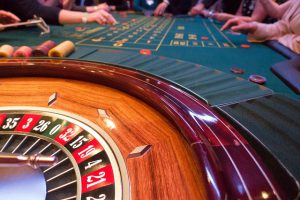Mathematics are interesting and they have helped turn our world around. We can find math anywhere, from our mobile phones, to online bookmaker where we use the betsafe bonus to have a good time. For most people, mathematics is arithmetic and that means working out simple additions or subtractions to calculate a number, usually one which will end up making a hole in their wallet. But, mathematicians have been working and trying their best to improve our world. Some of these scientists have created important breakthroughs in math, which have helped reshape our world. One of these scientists was Leonardo of Pisa, an Italian scientist also known as Fibonacci. Everyone has heard of the Fibonacci sequence but not about what it does and why it is important. Here is everything you need to know about the Fibonacci sequence and its practical uses in our modern world.
The Fibonacci Numbers/Sequence

The Fibonacci sequence or numbers are such that each number is the sum of the two preceding numbers, starting from zero. The sequence goes like this: 0, 1, 1, 2, 3, 5, 8, 13, 21, 34, 55, 89, 144, and so on and so forth.
They are most often applied within computers as search algorithms. They can also occur naturally, the stems of leaves, the branching of trees, the flowering of an artichoke, the uncurling fern, the way a pine cone’s bracts are arranged.
But what about their practical uses, besides nature and search algorithms? There are plenty of them.
Fibonacci Betting System
Gamblers have always wanted to find their way to money, or rather, find successful ways of betting which will win them more than lose. So, the Fibonacci betting system came to be. The system is most often used with roulette and craps, for the don’t pass and pass bets and when betting on the outside bets in roulette. Some use it when playing baccarat while others use it when playing blackjack.

Firstly, you need to identify a unit, a starting unit. In the sequence, the first unit is 1, because zero doesn’t really count. Then, you need to select how much you are going to bet per unit. Let’s say, five dollars. Your first bet will be five dollars. If you lose, you move up in the sequence, betting another five. If you lose again, you would bet ten dollars. Losing moves you up the sequence, winning takes you down. If you ended up winning with your ten dollar bet, you would go down the sequence and bet five dollars once more. Take note that betting systems most often do not work and that betting by itself is gambling, meaning random occurrences which you have almost no effect on with your system or otherwise.
Fibonacci Sequence in Converting Kilometers to Miles
The ratio of the Fibonacci numbers is very close to the Golden Ratio, 1.618034. Since 1 mile is roughly 1.609 kilometers, this is very close to the Golden Ratio. You can calculate miles from kilometers by shifting the register down in the Fibonnaci sequence.
Other Fibonnaci Sequence Uses

Economics use the sequence very frequently, but so do optics. Nature makes frequent use of the system, sunflowers, artichokes and galaxies, even. Music uses the Golden Ratio and the sequence, and there is even a method of composing dedicated to the use of the sequence, the Schillinger System.
Leonardo of Pisa changed the world when he discovered the Fibonacci numbers and sequence. It is used to this day and people are finding new ways of applying his success to calculate their bets, observe economics and even compose music. The future will most likely find new uses for the sequence, we just have to wait and see.

